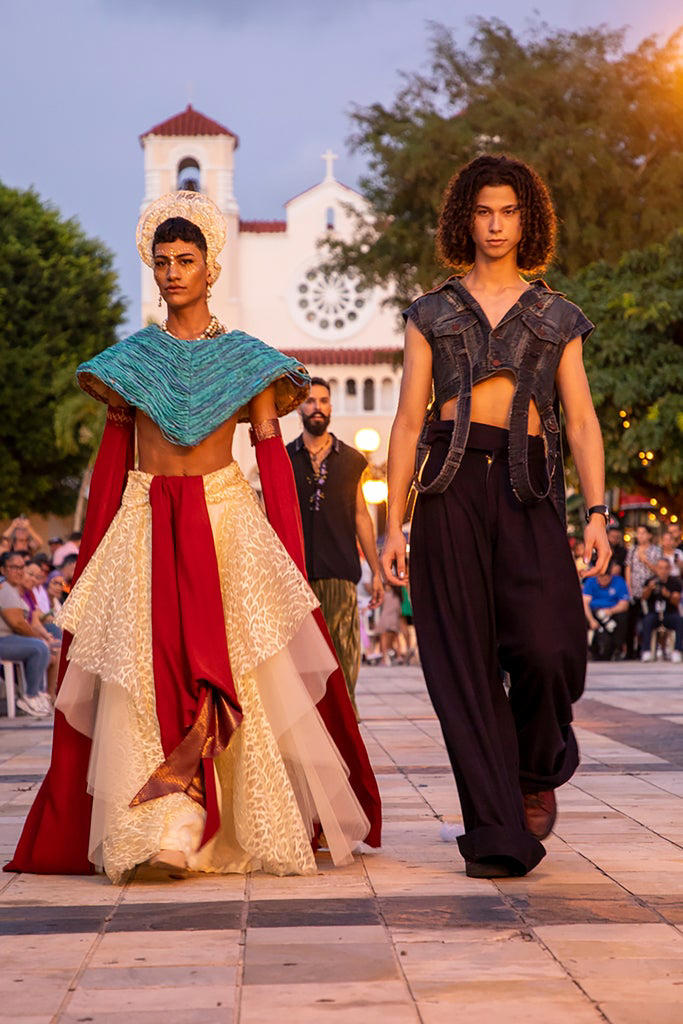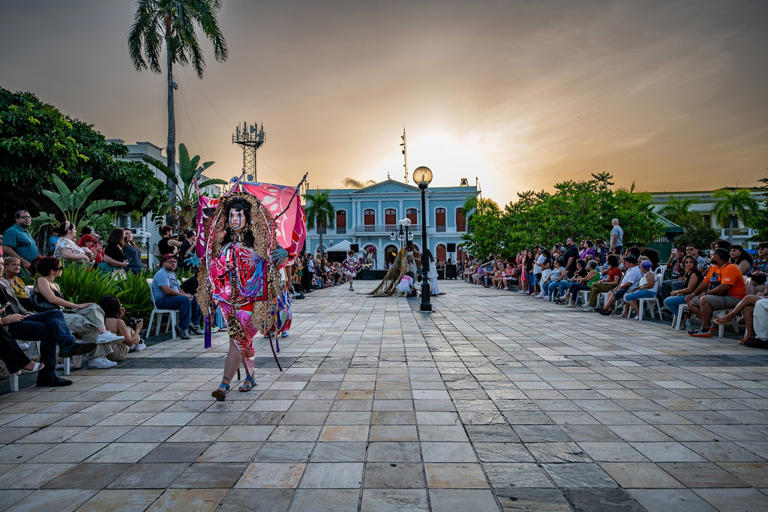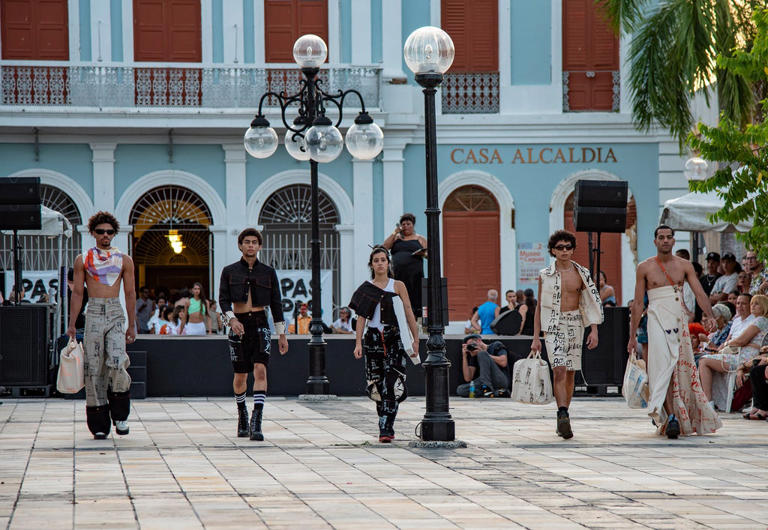Story by Frances Solá-Santiago • Refinery29 -Tuesday
The sun almost set in Caguas, a town in Central Puerto Rico, when the second annual Paseo Pasarela, a fashion show highlighting local designers, began. But while a typical runway would involve seating assignments, sponsored goodie bags, and elaborate venues, the setting for this fashion show is more representative of the aftermath of a decades-long financial crisis and consecutive natural disasters in Puerto Rico: A makeshift runway in the center of town’s plaza, surrounded by permanently closed storefronts (like El Telar, the textile shop my mom and I used to visit every Saturday when I was growing) and abandoned buildings — relics of a once-booming town.
“It’s so difficult to be a fashion designer in Puerto Rico right now,” says Cristina Nuñez, founder of Paseo Pasarela. “Costs are skyrocketing and we can only do so much.”

Inside The Anti-High Fashion Show Making Puerto Rico’s Style Scene More Inclusive Provided by Refinery29
As the sun waved goodbye in Caguas, I saw upcycled pieces styled in an androgynous aesthetic, from designer Crystal Vélez’s brand Crystla. Lechat Costumier, designed by Daniela Fabrizi, showcased genderless and modular pants with peeking boxers, paired with feather tops and tiny bikinis. Bon Múdez presented a collection that commented on cultural appropriation and colonialism in Puerto Rico’s history that ended with a top-and-skirt combo that resembled the island’s flag.
But it wasn’t just about the clothes. The show also featured a diverse set of models, most notably trans model, rapper, and makeup artist Gabriel Josué. Designers also made statements via their music choices, which varied from “Fuega” by rising Puerto Rican rapper RaiNao — a sultry track that features the sound of the güiro, an autochthonous percussion instrument — to “Donde nadie más respira” by ILe, a politically-charged song that narrates how colonialism is hurting Puerto Ricans.
Since 2019, Paseo Pasarela has given a platform to local fashion designers, providing an annual show to display their collections. It’s also opening the doors for attendees to enjoy fashion, no matter their background, class, or connections; anyone could show up at the town’s plaza to see the show that’s free of fancy dress codes or VIP seating. Afterward, people could stop by the Paseo Pasarela bazaar to shop from the designers featured, giving customers the opportunity to learn more about talent that’s often overlooked even on the island. “It’s very important to me to have that level of accessibility,” says Nuñez.

The idea for an all-are-welcome runway event started when Nuñez was studying fashion design at the Universidad del Turabo, where she worked on a capstone project that proposed a fashion show focused on sustainability and inclusivity. (To qualify for Paseo Pasarela, designers must work within streetwear or ready-to-wear and focus on inclusivity and sustainability.)
“Fashion was one of the pioneering industries in Puerto Rico, and it has [since] decayed for political and economic reasons,” she says. “I realized there was a need for a space for emerging designers and innovative ideas.” Driven by that, she also wanted to create a space that was different from the gatekeeping fashion events she had worked in years before: “I never felt comfortable, I was looked down upon.” Furthermore, Nuñez says that the styles weren’t reflective of the everyday wardrobes of most people. “It was prom dresses, gala dresses, and I just felt like that wasn’t my reality,” she says. “[I thought,] How can we take local fashion to a more creative ready-to-wear level?”

By hosting Paseo Pasarela, Nuñez is widening the visibility for designers that have likewise felt excluded from fashion spaces and often lack the resources to put together a fashion show. So far, Paseo Pasarela’s judging panel has evaluated the works of over 100 designers, choosing 20 to showcase at the event. While the lineup focuses on emerging talent, it has also invited more established Puerto Rican designers to participate, including Amanda Forastieri, a Supima Award-winning designer; Nasheli Juliana, a Philadelphia-based former contestant on Netflix’s Next in Fashion; and Héctor Omar, a once-Project Runway contestant.
With the success of its two first installments, Nuñez says that her goal is to take the show on a tour around the island. “Our mission is to democratize fashion and to take it out of the metro area,” she says. But, ultimately, it’s about creating opportunities and sharing resources for designers to be able to work in Puerto Rico: “I want to establish a community that can back itself.”
No comments:
Post a Comment